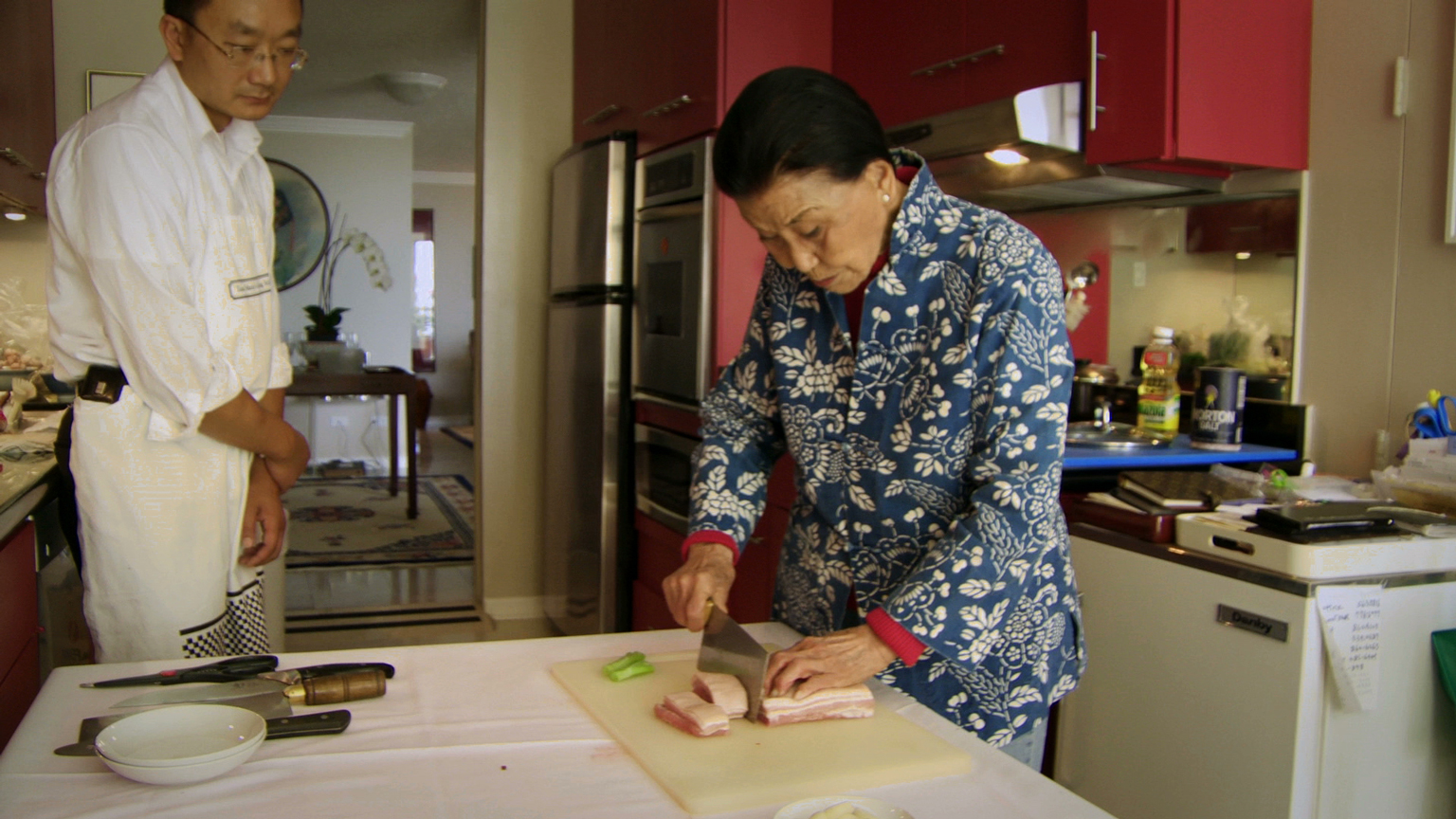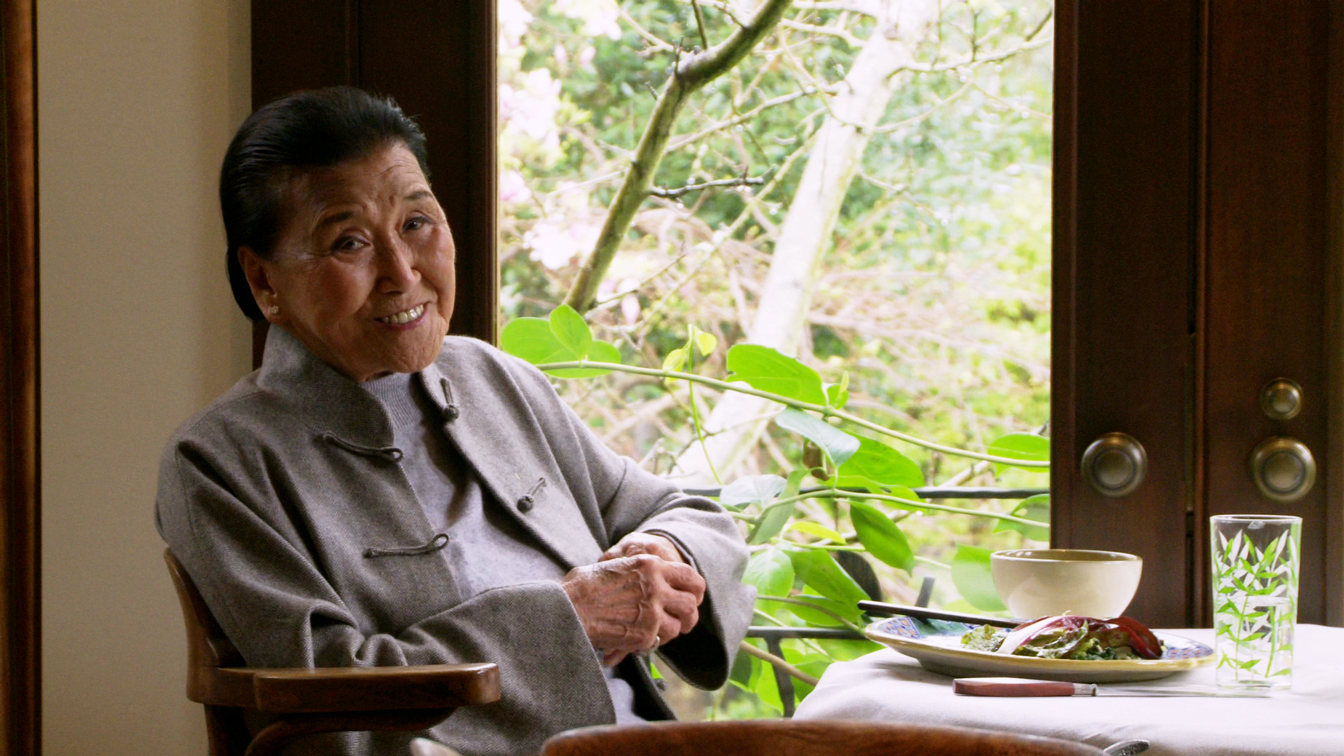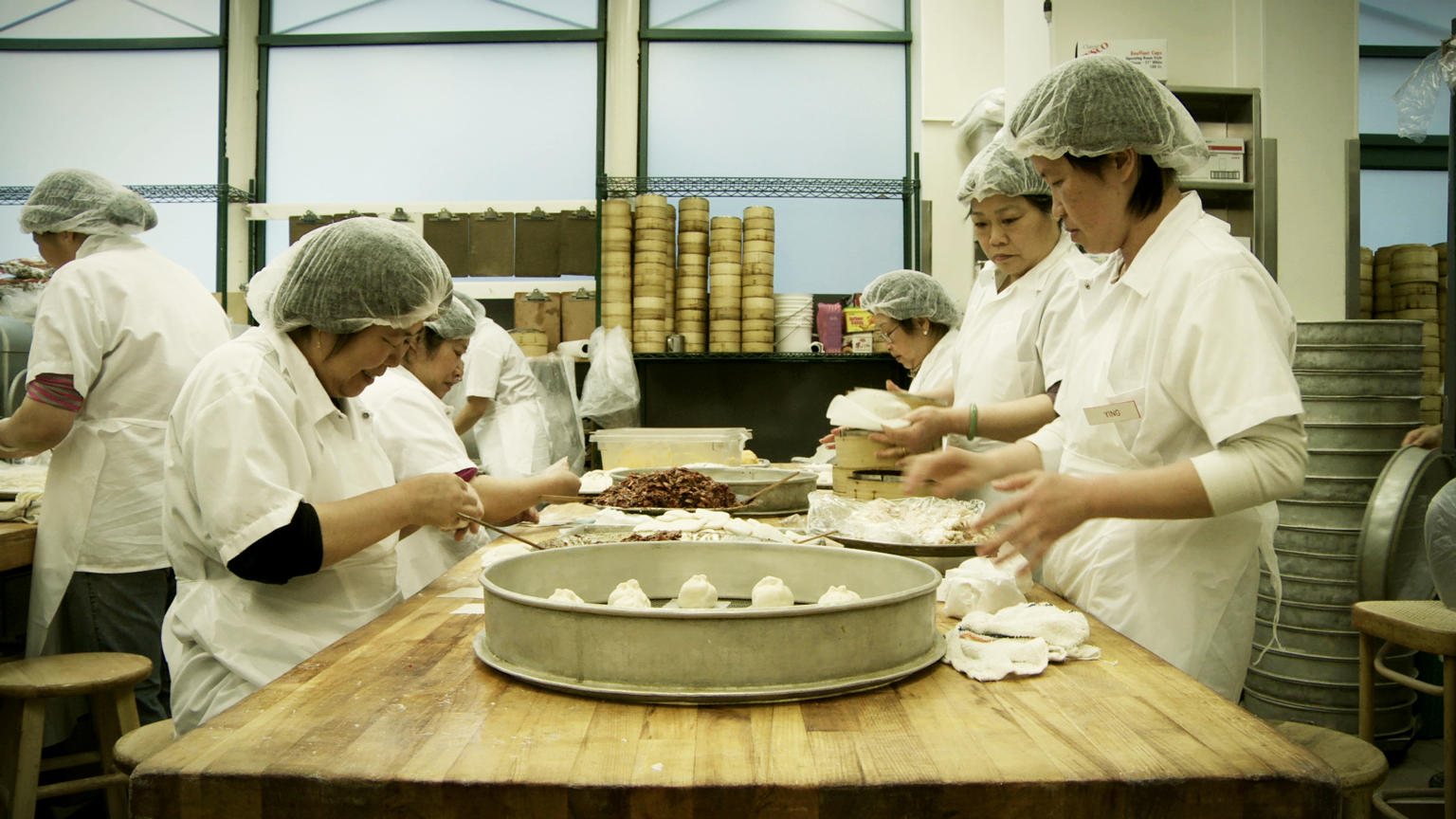Article by Eder Guzman
Cecilia Chang is a 94 year old woman. She is the subject of the film “Soul of a Banquet”, held at Bruce Cost Ginger Ale Factory in Bushwick, Brooklyn. The idea for the film all began with the simple premise “What is Chinese food?” Many modern cooks that present their food as Chinese food in America generally have weak links to Chinese culture. Cecilia Chiang has grown in traditional China, one that existed before the rise of Chairman Mao, one that is long forgotten. Bruce Cost, owner of the factory, is proud to host the screening for the film. He brings up Vogues’ recent article of naming Bushwick the 7th coolest neighborhood in the world, thereby making it the perfect setting for a movie foodies would enjoy.
Cecilia invites her friends for a traditional Chinese banquet at her home. She is eating a meal with Alice waters, her longtime friend and collaborative partner, speaking about her kind of cooking. There are scenes of wrapped food, on a plate, a 12 person table near with 2 windows, and a table with new cooks smashing dough. Wayne Wang, the filmmaker, explains that he was influenced in part by Les Blank, an American Documentarian that covered American music styles. He had read an article concerning food from California, and its approaches to Chinese food.
Cecelia is from Shanghai, and she was the 7th daughter, and thus was named Sun Yu, meaning 7th daughter. Her family moved to Beijing when she was 4. In all, her family had 12 children, 9 girls and 3 boys. She lived in a big house, which came with a big kitchen, Her mother had cooks and servants to help her with all the chores, and she supervised the cooking as well. Her mother was very strict, but her father was more compassionate, more progressive and open to discussion. Ruth Reichl comments on her family’s Chinese splendor, and how her mother grew up in the tradition of bounding the women’s feet, yet she nor her daughters had their feet bound.
Her mother had grown up learning and knowing about food, and that knowledge was passed down to her daughters. Her father had also pushed the girls to become educated, with all the girls going to college. Cecilia had had grown up between the old tradition and the new, an example given was that when they were younger, they were not allowed to sit before their dad sat at the dining table. Her dad would also scrutinize her mom’s food, and this is how the children developed a library palate of taste.
She moved to San Francisco when she moved to the states, and was discriminated against. Chinatown was Cantonese speaking place, but she did not speak it. She goes on to describe the food in Chinatown as being nostalgic for China, but the food becoming very Americanized. She wanted something totally different for her restaurant, she wanted real Chinese food. Real Chinese food in her childhood depended on the time of year, texture, colors, good health, the order of meals, the cleansing of the palette, and good portion size. Rachel Reichl tells us that the ideas of food transcend just feeding people, and this is what Cecilia takes into account.
In the beginning, Alice Waters, her friend for many years, said that all Cecilia wanted to do make a club for friends to get together, and make a little money on the side.
Ceclia traveled back to China, she saw soldiers with red scarves and leather whips “long live chairman Mao.” She met with her family, and “they did not recognize her, she was gone so long.” Her dad lived in a small hut made of mud and dirt, and only a mat inside. She could not recognize him, he was less than 100 pounds, but he told her everything he could. Her mother, unable to provide for herself, had left about 4 years ago, sick and weak. They had been beggars on the street for 2 years, yet could not make ends meet. Apparently, her cousin had denounced her mother, Cecilia’s mother’s sister, to the Maoists. They arrested her, punished and tortured her, because her aunt enjoyed singing Opera, which was forbidden. Opera was a remnant of the bourgeois, and all remnants were forbidden.
Her brother, an intellectual from Tunghai University, was sent to a labor camp, and her sister committed suicide. He told her everything he knew, and as soon as he did, he stopped breathing. Those were tough times for Cecilia, and she could not imagine how everything could have gone so wrong for her family. When Mao took over, the Chinese chefs were reeducated, and this meant the end of most cultural dishes.
Cultural references were now just substitute stew. Because of this Cultural Revolution, no one knows how to cook a traditional chines banquet anymore. New chefs don’t bother to have a cleaning process; they begin cooking without knowing the older authentic recipes. New chefs do not want to spend the time necessary for preparation work, which is essential for refined meals.
Cecilia begins preparing her meals 8 hours in advance, and we see all the thought and preparation that goes into it. She has help from other chefs as well, and she shows how the flavors of how to treat green pepper corn, how pineapple is cut, fried, and added into the chicken. She explains how 5 flavors are added to the chicken, with salad and goji berries, and other sweet and spicy flavors, all complementing each other.
Her friends all sat down, and went through a crash cultural history course which provided better insight on each course. We learned about beggars chicken and how it came about because of the food shortage. There was no way to store it, so it was wrapped in leaves, tied , and buried in the winter underground until they were ready to eat it. All guests were very appreciative of how well the courses were, and congratulated her.



Leave a Reply